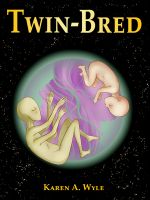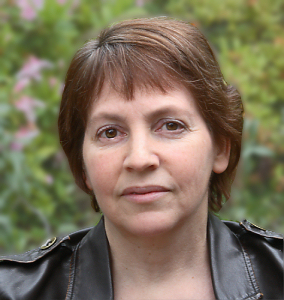For those who don’t know, National Novel Writing Month (NaNoWriMo, or NaNo) is an online activity sponsored by the nonprofit Office of Letters and Light. Each year, during the month of November, writers all over the world attempt to write at least 50,000 words of a novel entirely within that month. You can post your word total online and see charts showing how far you’ve come, how far you have to go, what your average word count per day needs to be in order to finish, etc. There are forums for asking questions (e.g., “How much arsenic would it take to kill a turkey vulture?” or “What language(s) do people speak in Lichtenstein?”), or suggesting memes to be incorporated in one’s novel (e.g. the notorious Traveling Shovel of Death). If you reach 50,000 words, as measured by the website’s word count validator, you are a “winner” and receive various symbolic goodies, plus a free proof copy of your book from CreateSpace.
My first experience with NaNoWriMo was secondhand. In 2009, my older daughter found out about NaNo somehow and decided to give it a try. (She had written a number of short stories and poems, but nothing longer.) She came up with her plot during a car ride with a friend. She persevered despite the demands of her senior year in high school, and a mid-November trip to visit the Savannah College of Art and Design. She “won” with a day or two to spare, producing a lovely road-trip coming-of-age love story.
At her age, I had not yet despaired of writing fiction, but I had already given up on writing novels. After writing a novel at age 10, realizing it was dreadful, then starting and abandoning another at age 14, I wrote poetry for a few years and tired of my poetic style. Still sure I was meant to write, searching for my proper form, I signed up for a short story writing seminar. One day, as we were discussing our work, the instructor cheerfully commented that I had done something or other quite well for someone who “wasn’t a born writer.” Having my lifelong certainty so casually contradicted was a last straw. I stopped writing anything but the expository prose required for my literature classes. I went to law school and learned to churn out persuasive argument in quantity.
When I became a mother, I started writing picture book manuscripts. Few had even the most basic of plots, and none had fully realized characters. I told myself that such elements were beyond me.
My daughter was planning to do NaNo again in 2010. Somehow, in the year between NaNo 2009 and NaNo 2010, I began toying with the idea of trying it myself. I expected to drop out after a few days with nothing much done. I gave myself permission to drop out – and thereby gave myself permission to try.
I made the decision only a few days before November 1st. I came up with a few different science fiction ideas, picking one a day or two before NaNo started. It was a starting point and nothing more: no developed plot, no ending, not many characters. I started at the beginning and just let it happen. To my delight, I found that dialogue came to me, and characters appeared. Plot developments popped into my head, often when I wasn’t writing. I learned to keep paper and pen with me at all times, except in the shower – and to shower fast. I found that my most creative time was lying in bed, waiting to fall asleep. (It did happen once or twice that I wrote myself a note in the dark, forgot to tear off the sheet, and later wrote another note on top of it, rendering both indecipherable.)
Two or three days in, I stopped writing in sequence. When I had an idea for a scene, I wrote it down in a separate document to consult later. I worked on whatever scene had my interest at the time, plunking it in later wherever I thought it might fit.
The most important NaNoWriMo motto, for me, was “Don’t be afraid to suck.” The point was to turn out a first draft. If any of it was good, that was gravy. With this ground rule, I was able to keep my inner editor – not to mention thoughts of my years of defeatism and passivity – at bay.
I had the advantage (in this context) of being not just self-employed, but self-underemployed. I could write whenever the urge or the idea struck me. With that schedule, I didn’t keep track of how much time I spent writing, but I believe that for most people, the required 1,667 words per day take about 2+ hours.
We had a wonderful Municipal Liaison who gave us goodies – calendars with word goals for every day, stickers – and set up multiple write-ins every week. It wasn’t the most productive writing time – we talked too much – but we cheered each other on and brainstormed when one of us was stuck. (Since NaNoWriMo, we’ve continued meeting every two weeks to write, talk, share resources, and enjoy each other’s company.)
 I made my 50,000 target with days to spare, and continued to 60,000. I did one major rewrite the following month and thought I had something good. That assessment was premature. NaNo, and especially the easygoing, “pantser” approach to NaNo that I followed, is the way to generate the raw material for a novel – not a novel. It’s a beginning. But a beginning was what I desperately needed. I heartily, almost evangelically, recommend it for anyone who needs the same.
I made my 50,000 target with days to spare, and continued to 60,000. I did one major rewrite the following month and thought I had something good. That assessment was premature. NaNo, and especially the easygoing, “pantser” approach to NaNo that I followed, is the way to generate the raw material for a novel – not a novel. It’s a beginning. But a beginning was what I desperately needed. I heartily, almost evangelically, recommend it for anyone who needs the same.
In August 2011, I took a break from editing my first NaNo novel and took part in “Camp Nano,” a stripped-down summertime version of NaNoWriMo. I completed a very rough draft of another novel, which is waiting for me to have time to revisit it. Can’t do it yet — I have NaNo 2011 coming up. I’ll be working on — and with a little luck, completing a rough draft of — the sequel to my NaNo 2010 novel, Twin-Bred. Stay tuned!
Find Karen’s book Twin-Bred on Smashwords. Be sure to check out her webpage and her blog. You can find her author page on Facebook, or follow her on Twitter.


So many of us have that proverbial half finished novel. I love what you wrote about keeping your inner editor at bay. Maybe I will get something accomplished if I take even that one point to heart — and you made many good points!
Great work, Karen!
Peg
Next time, get a pen with four colors for your bedstand and click to a different color before each note.
Congratulations!
I applaud the fact that you tried Nano! I'm still too chicken yet, but maybe next year!